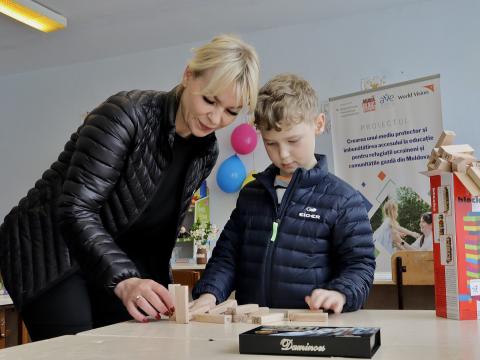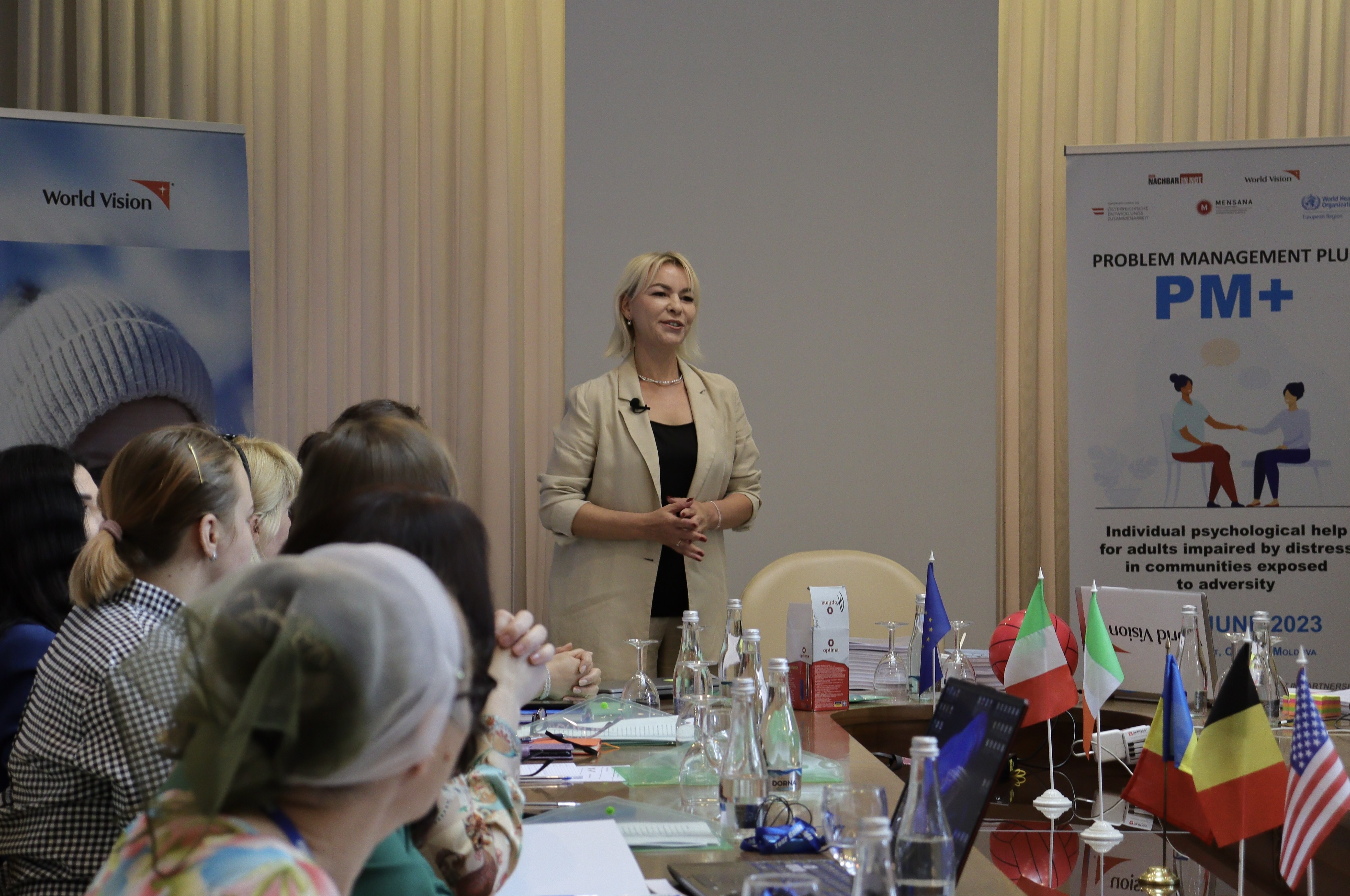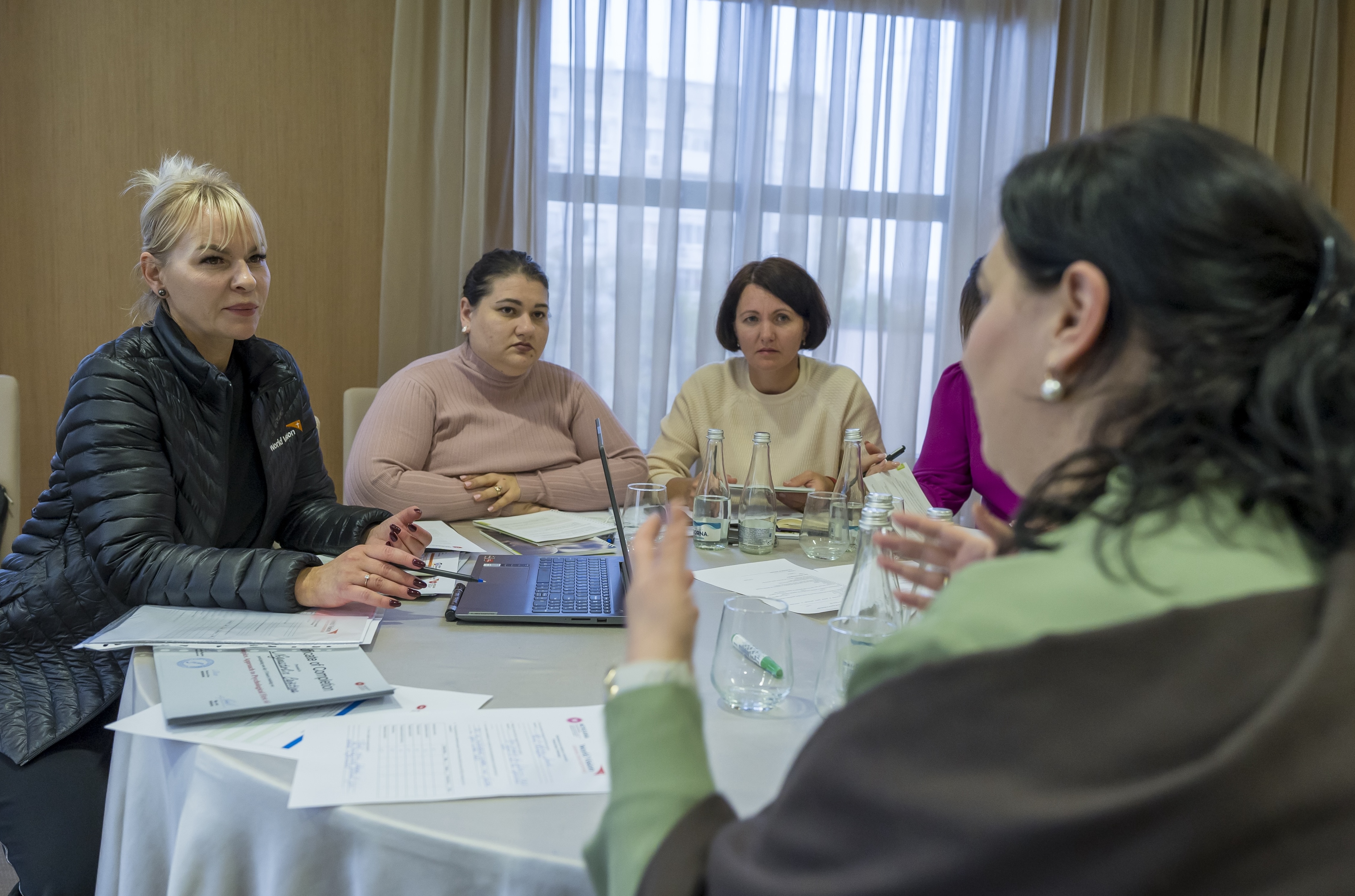Humanitarian worker highlights role of mental health and psychosocial support in emergencies

Eleven years ago, Dr. Lily Damaschin embarked on a life-changing journey to Ethiopia as a volunteer, driven by a deep desire to serve vulnerable people.
The challenges she faced were immense, surviving malaria, helping treat people infected with Ebola, risking her own life to assist others. It was the beginning of a commitment as a humanitarian worker.
As World Vision Ukraine Crisis Response’s Mental Health & Psycho-Social Service Specialist in Moldova, Dr. Damaschin reflects, "My experience in complex environment is invaluable. Moldova never faced a humanitarian crisis of this magnitude, work was intense, but the impact we made each day was my motivation to keep going."
As a certified and experienced project manager and psychological first aid specialist, her role focuses on building the capacity of various sectors, volunteers and partners across the country.
"When an emergency happens, we must be prepared to help those in distress. Our work is focused on training psychological first responders, equip them with the skills to provide psychological and social support to those affected by severe crises”, Dr. Damaschin adds.

She shares some realities from the frontlines, "Imagine being sent to a disaster zone, a war-torn area, or arriving at the scene of a tragic accident. Whether you're a humanitarian worker, a volunteer, a teacher, or a health professional, you find yourself speaking to someone who has just witnessed an unimaginable loss.”
“Every story we hear leaves a mark in our hearts, which is why we approach each person with utmost care and respect. During our sessions, we have met with many skilled, motivated individuals who have faced hardships which fuels their drive to help others”, Dr. Damaschin shares.
She emphasizes the critical nature of the work on mental health and psychosocial support. "Physical safety doesn't guarantee mental and psychological well-being. In our region, mental health has historically been overlooked, so in many ways, we’re starting from scratch.”
“Thanks to the community's interest, we're able to provide help and train specialists to serve their own neighborhoods”, she adds.

Dr. Lily’s work extends beyond immediate crisis intervention. She visits summer camps and child-friendly spaces to promote better conditions for development and integration, particularly for the refugee children.
"Our success is measured by the futures we help shape - the people who find new hope and strength through our support. In times of crisis, that support can change a life”, she further reflects.
Reflecting on her journey, Dr. Damaschin says, "I have faced difficult situations myself, and it was the support of others that made all the difference. I’m proud to serve alongside a team of highly qualified specialists, fulfilling our calling to make a real, lasting impact."
Download: Capacity Statement on Mental Health and Psychosocial Support
Story by Pavel Iorga, (former) Moldova Communications Officer I Photos by Eugene Combo and Chris Lete, (former) Communications Consultants